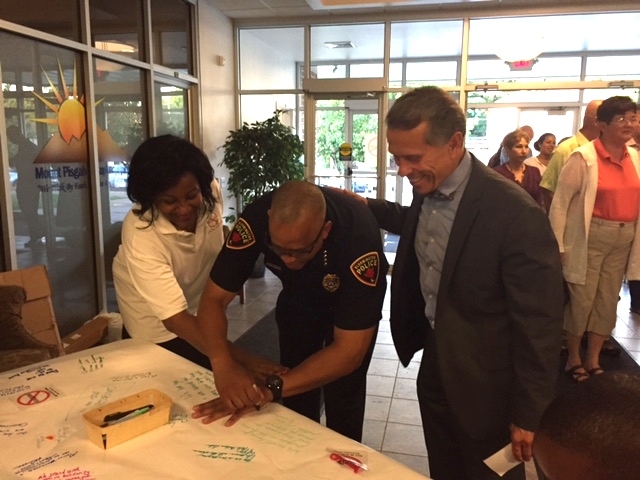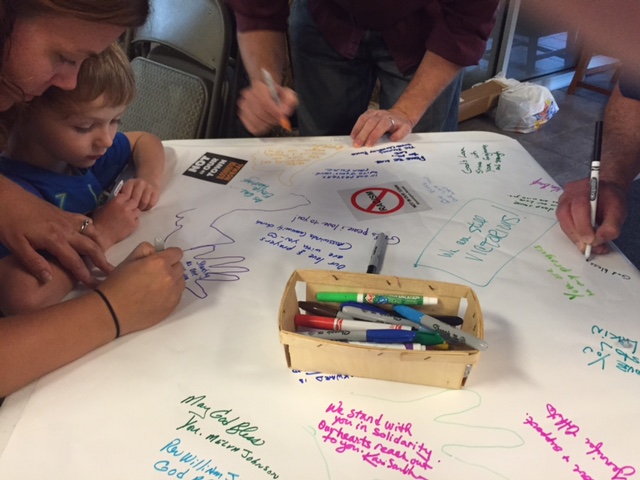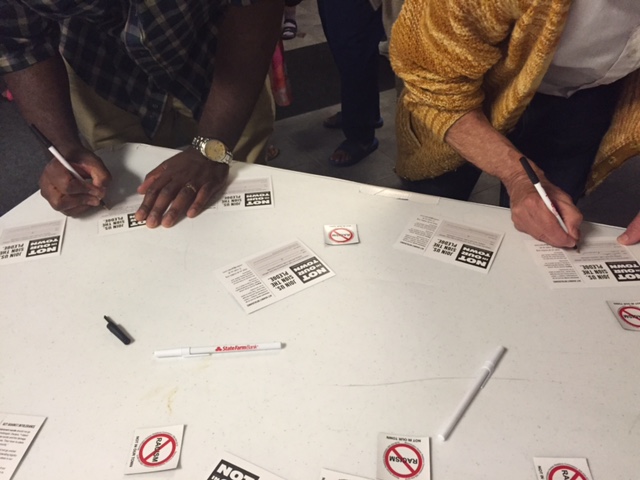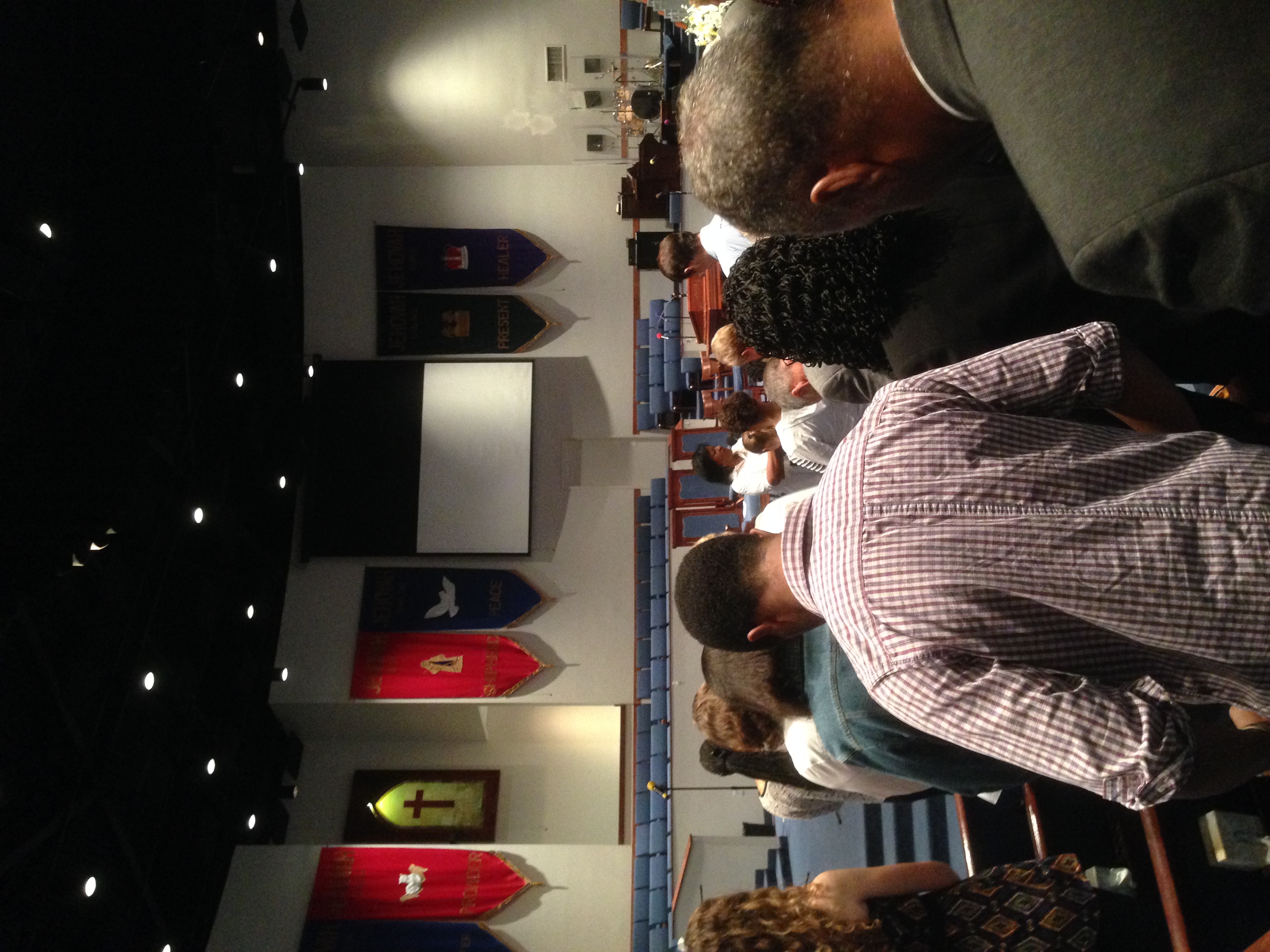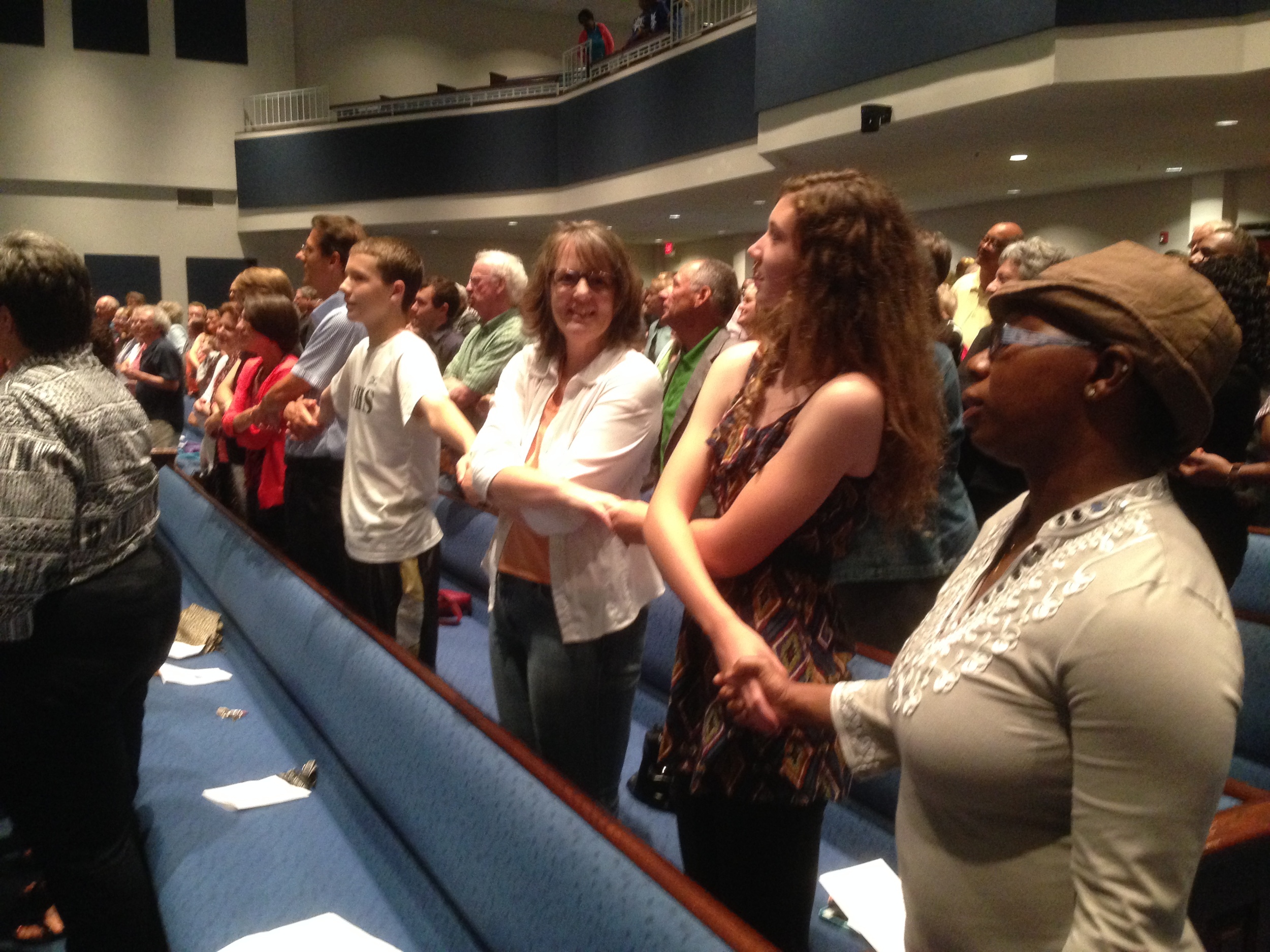More than 250 Twin Citians -- black, white, members of a variety of local churches -- joined Wednesday night at Mt. Pisgah Baptist Church for a powerful prayer vigil and candle-lighting for the nine victims of last week's Charleston church shootings.
Beyond individual prayers for the victims and their families, their community, and the Twin Cities, area residents at the event raised more than $1,400 to be donated to the families of the victims of 21-year-old shooter Dylann Roof.
"Hate was defeated by love tonight," concluded Willie Holton Halbert, a leader with vigil host Not In Our Town: Bloomington/Normal and vigil leader. "The Vision came alive! Just look at the rainbow of hope -- equality is possible!
"I had to share as I reflected and (Halbert's husband) Charles showed me the rainbow that stood over the church as we began the prayer vigil. Let's keep the momentum going as people are wanting to be engage."
Mt. Pisgah Pastor Frank L. McSwain delivered the evening's central message (listen to audio below), arguing the need for community wide unity and understanding to ensure mankind's survival "as a race."
He called for examination of the hatred, attitudes, and environment that led Roof to murder the Charleston parishioners after spending an hour with them in Bible study, while the minister emphasized the ongoing human and societal pain caused by overt, institutional, or even casual bigotry and bullying.
"You don't have to shoot somebody to kill them," McSwain said, urging the group to "go beyond the limitations of your own humanity" and both resist the social "status quo" and "learn to love somebody." McSwain cited the abuse his family faced at white hands and his lighter-skinned mother's determination to "prove she was still with us."
"Should I have hate in my heart?" he posed. "You can't have hate in your heart with Jesus living there at the same time. . .When you establish a relationship with people, and you come to respect people for who they are, you'll come to find out they know a little bit more than you and they can help you more than you thought they could. How valuable is it for us to be together as a people? Together, we stand; divided, we fall."
Vigil participants left hand prints on a message paper roll and wrote a messages to the families in Charleston, and NIOT:B/N distributed anti-bigotry/anti-bullying pledge cards. Local youths with their parents lit candles and led prayers for each of the nine victims, and representatives of Bloomington's Second Presbyterian Church, First Christian Church and Moses Montefiore Temple offered devotions. In her closing benediction, First Christian Associate Minister Kelley Becker asked to "enable us, despite our circumstances, to live together, respecting, embracing, and loving one another."
Mt. Pisgah youth choir director Shirley Boykins led the group in the hymn We Need You to Survive before participants linked in a Unity Circle around the Mt. Pisgah sanctuary.
Meanwhile, vigil guest Bloomington Police Chief Brendan Heffner asked the community to join his department in fighting racism and potential violence to help ensure a Charleston-style tragedy never occurs in the Twin Cities. Heffner reiterated the BPD's commitment to "serve and give back to you in the community."
"We have to be strong together," the chief stressed. "If you see something, say something. And work with us so that we can hopefully help a prevent a tragedy like that. It's going to take all of us working together.
"We may not always get along -- we may disagree on some things. But the bottom line is, we are all here together."
